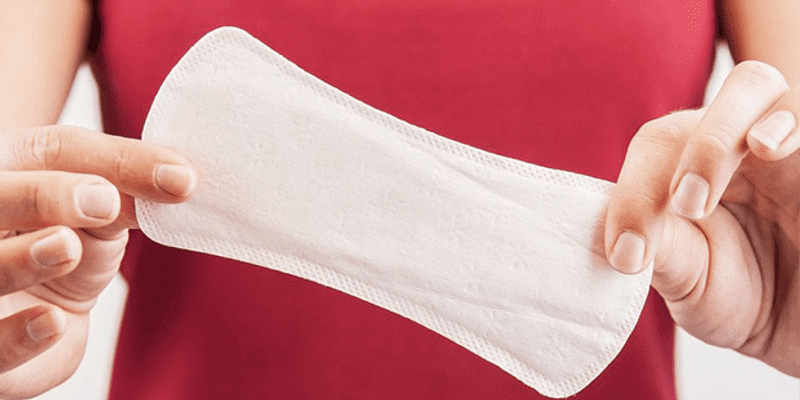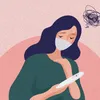Coronavirus: Access to menstrual hygiene impacted due to the lockdown, study reveals
A study conducted by Menstrual Health Alliance of India (MHAI) revealed that closure of educational institutions and community organisations has severely degraded the supply chain of menstrual hygiene products, especially in rural areas.
The coronavirus pandemic has severely affected access to menstrual products and hygiene, especially for women in rural areas, a study by Menstrual Health Alliance of India (MHAI) revealed. The findings of the study were released during an online workshop held by Dasra, a philanthropic organisation in partnership with Change.org on May 21.
The study, which surveyed nearly 67 organisations that are currently involved in relief work in India, Africa, and other countries, said the pandemic has disrupted not only the supply of menstrual products, but also their manufacturing and distribution.

File photo
Closures of educational institutions and community organisations have further exacerbated supply issues, with 62 percent respondents indicating that access to menstrual products through regular channels has become challenging, while 22 percent said they did not have any access at all.
Due to the restricted availability of menstrual products through regular channels, like FMCG and medical stores, the local demand for products has increased, according to 52 percent of respondent organisations.
Women in rural areas have been most affected due to the constrained production, as availability at last-mile rural retail points has been impacted. The lack of public transport and mobility restrictions under the lockdown has also affected consumers who access menstrual products at block or district level markets.
Because of a lack of sanitary products, women and girls have been forced to shift from disposable pads to cloth pads.
“Most adolescent girls from low-income households depended on school-based supply in Government schools. Given that schools have been closed since the lockdown, they have started using cloth pads. We need to look at how reusable product choices like cloth pads and menstrual cups can be promoted with information on maintenance of hygiene in order to build resilient MHM practices,” says Tanya Mahajan, coordinator at MHAI.
The silver lining though is that this lack of supply has created an opportunity for women to switch to more eco-friendly menstrual hygiene products. However, that would require a change in behaviour and consumption, as well as strong communication on ways to use these eco-friendly options - such as menstrual cups and cloth pads - safely.
Presently, however, civil society organisations have been pitching in to help women and girls get access to menstrual hygiene products.
“Over the past few weeks, we have made recommendations to Ministries and State Departments to provide access to sanitary napkins at village level, through government functionaries, frontline workers, self-help groups, civil society and other partners who work in the field," said Shailja Mehta, Associate Director of Dasra.
"We know that the Government of Jharkhand has taken a step to resolve this through last-mile delivery of menstrual hygiene products during the COVID19. It will also require other stakeholders including funders and civil society to continue to support this,” she added.
Other solutions to tackle the supply problem include effective management of access to menstrual hygiene products, short term distribution through relief centres and food supply operations, facilitating linkages from wholesalers to community-level women entrepreneurs and SHGs, the report said.
It also called for the involvement of men, boys and community stakeholders to ensure women have access to private and clean WASH facilities via targeted messaging and exploring co-production of masks and cloth pads to ensure adequate supply.
Finally, local administrations need to unlock storage in schools and community health centres, integrate WASH and hygiene along with COVID-19 related messaging, gender-segregate WASH facilities and ensure they are clean, safe and private, the study suggested.
Edited by Aparajita Saxena










![[Jobs Roundup] Work with fintech unicorn Paytm with these openings](https://images.yourstory.com/cs/2/211ccaf0-0e6d-11e9-97fe-8f165dce9bb1/shutterstock_1170173932-115517683139531559118069428.png)

